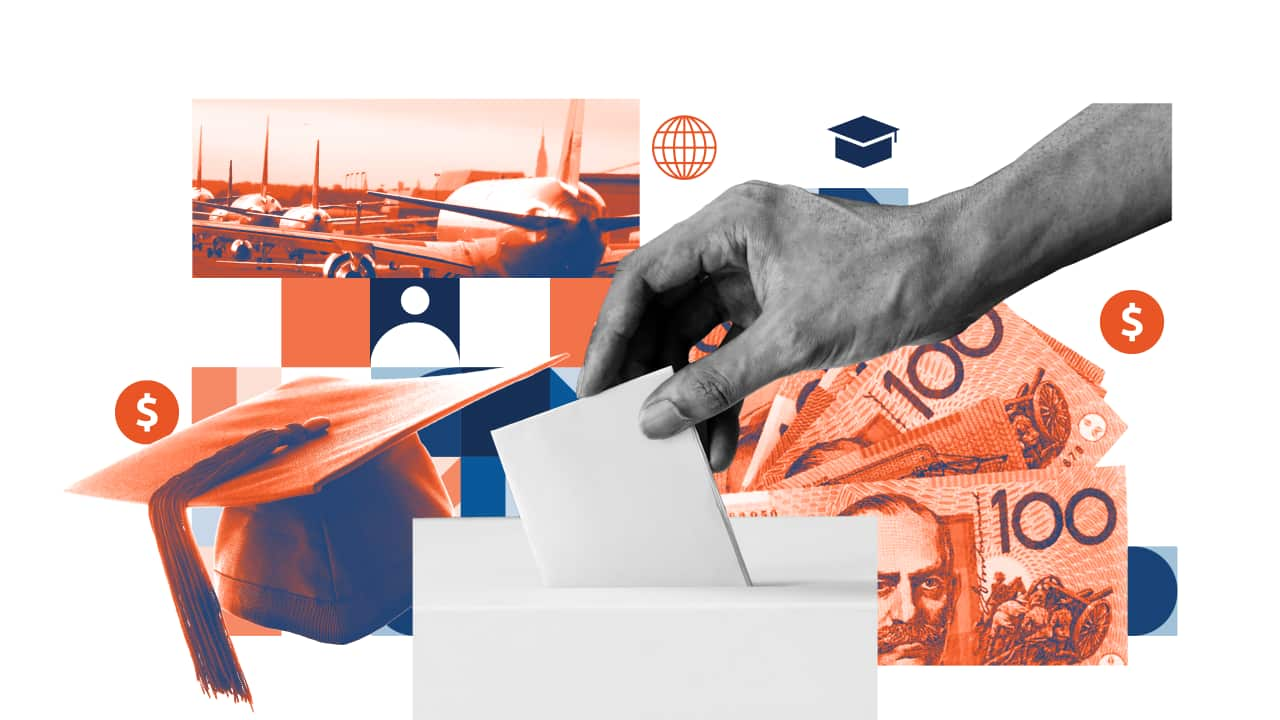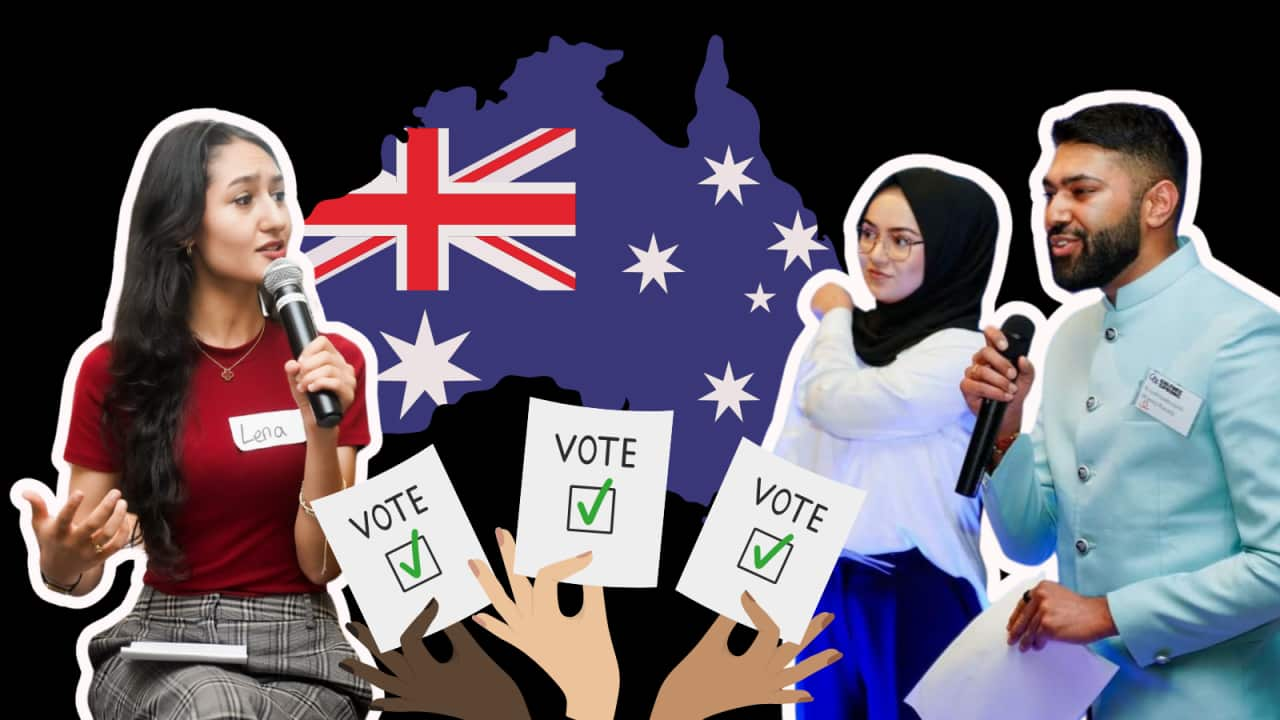Nan Mu Kay Tu Sein’s family was granted asylum in Australia in 2007 as part of a humanitarian pathway in response to violence in Myanmar.
She told SBS Karen that Saturday’s Federal Election comes with a "sincere hope" that the winner will open a new humanitarian pathway for Karen refugees.
Myanmar’s recent deadly earthquake exacerbated the devastation felt in a country caught up in an ongoing civil war, which has resulted in people fleeing to refugee camps along the country’s border with Thailand.
Sein said there were community fears for loved ones caught up in the conflict.
"Over the past decade, if I recall correctly, the Australian government, through its refugee resettlement program, accepted Myanmar refugees, enabling Karen people to settle here," she said.
"The government had stopped this resettlement program for an extended period. We hope the new government will reopen the door for Myanmar refugees residing in Thai-Burmese border refugee camps."
These topics were among dozens of key election issues gathered from SBS audience members.
The project — Election Matters that Matter — saw producers of more than 50 SBS Audio language programs conduct vox pops, talkbacks and conversations with prominent groups and leaders to identify the issues.
Which election topic was identified most?
From supermarket prices, mortgage stress, GP costs and rental affordability, the many tentacles of Australia’s cost-of-living crisis were identified as most important by more than 40 SBS language programs.
Meanwhile, promises to cap the intake of international students, made by Labor and the Coalition, were of focus among Hindi, Punjabi and Telugu speakers.
An elected Coalition government would allow 30,000 fewer foreign students into Australia each year compared to Labor's plan. This would set the cap of international students each year at 240,000.
Last year, Labor announced it would cap international student numbers at 270,000 from 2025.

Promises to cap the intake of international students, made by Labor and the Coalition, are of focus among many SBS audiences. Credit: Xinhua News Agency/Xinhua News Agency/Getty Images
He has been watching the debate around international students closely, remarking that it mustn’t be forgotten that international students contribute significantly to Australia’s economy and social fabric.
"While I’m fortunate to be studying here in Australia, I do feel a sense of concern and sadness for many aspiring international students from my country, India, and elsewhere who see Australia as a top destination for education," he said.
Capping the student intake risks "sending the wrong signals" to potential international students, which affects Australia’s reputation as a welcoming, world-class education destination, he believes.
Aged care and seniors’ pensions
Delivering on the recommendations of the Aged Care Royal Commission in 2021, as well as improving the quality of care and mitigating admission costs, were top election issues among members of the Italian, Korean, Greek, Macedonian and Polish communities.
The Royal Commission found that the current Aged Care Act and its related legislation is no longer fit for purpose, with a new act set to come into place from 1 July.
The new act will aim to improve the ways services are delivered to people in their homes, community settings and approved residential aged care homes.
Harry Danalis — the President of the Greek Orthodox Community of NSW — said reforms to the aged care sector and increasing the Age Pension for seniors were prominent topics for Greek Australians.
"We have an ageing population, and it's fine if they're able to look after themselves at home but if they’re not able to look after themselves — and the numbers are getting bigger and bigger by the day — they have to be admitted into a hospital or an aged care facility or a nursing home," Danalis said.
"There aren't enough places, enough beds to go around for the demand out there for the Greek community, so it's a matter of vital importance."

Reforms to the aged care sector are prominent topics for many Australians. Source: iStockphoto / BlessedSelections/Getty Images
The maximum fortnightly rate for a single pensioner is $1,149.00, and for a couple it's $1,732.20, though a person’s income and assets will affect how much they receive.
Danalis believes a married couple or even a single person can barely survive on these rates.
"We all know how the cost of living has spiralled and the cost of living is no easier for the pensioners and many of them have to forgo things that they would normally spend on — many times food and other times other necessities — because they just can't survive on the level of the pension that it is at the moment," he said.
A focus on populism
'Populist’ statements are a focus for the Russian-speaking community, many of whom question how realistic election campaign promises are ahead of the poll.
A Melbourne voter from the Russian community, Evgeniya, explained that she looks beyond 'populist' statements in policy announcements.
"If some kind of tax cut is proposed, then it should be explained: at whose expense, from whose pocket, and how it will work," she said.
"I look at where more complex, long-term solutions are proposed, because this is the reality in which we live. Political historical experience shows that quick, instant solutions do not bring profits.
"The first thing I look at is the formation of the budget. The second is what solutions are proposed to reduce the cost of living, (and) how they work with inflation."




